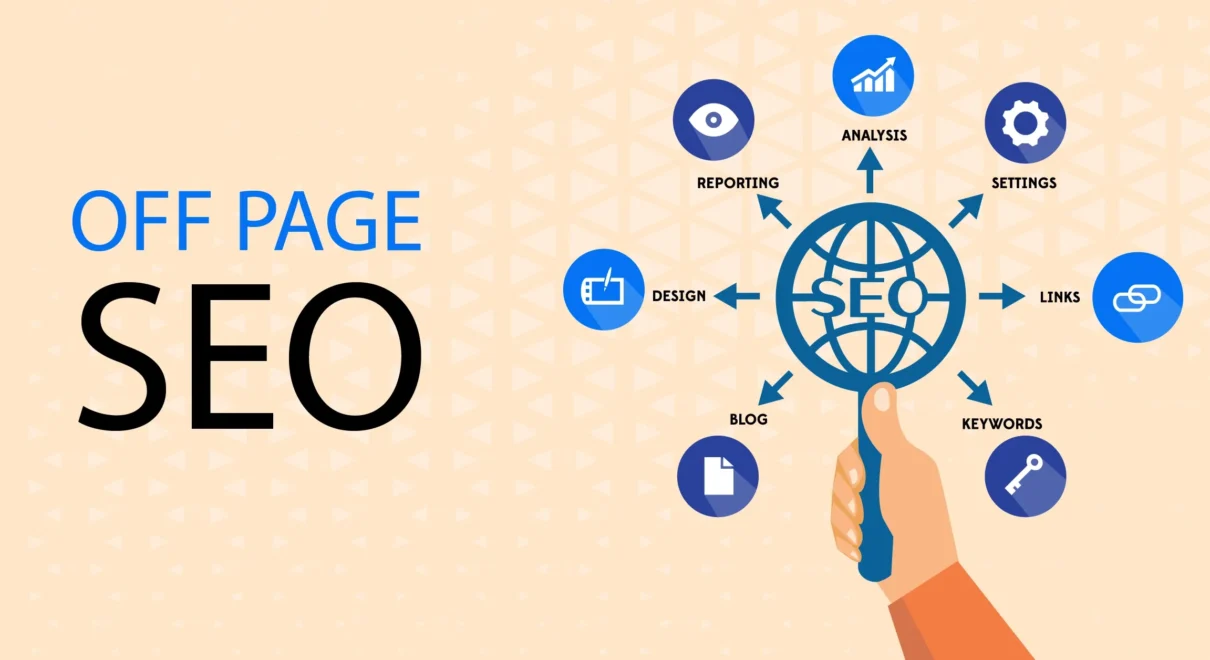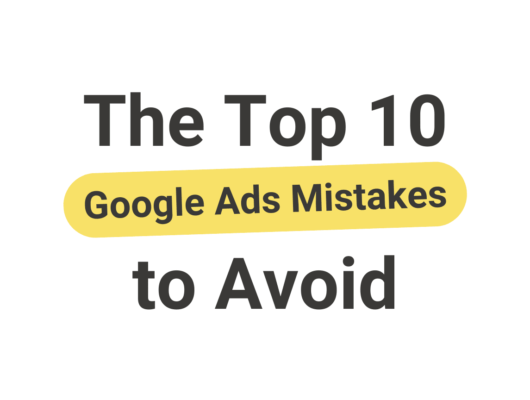Introduction:
When most people think about SEO, they immediately picture optimizing the content and structure of their own website — things like keywords, meta tags, and page speed. While these on-page SEO factors are crucial, they’re only half the story. To truly boost your website’s visibility and rank higher in search engine results, you need to focus on what happens outside your website, too. This is where off-page SEO comes into play.
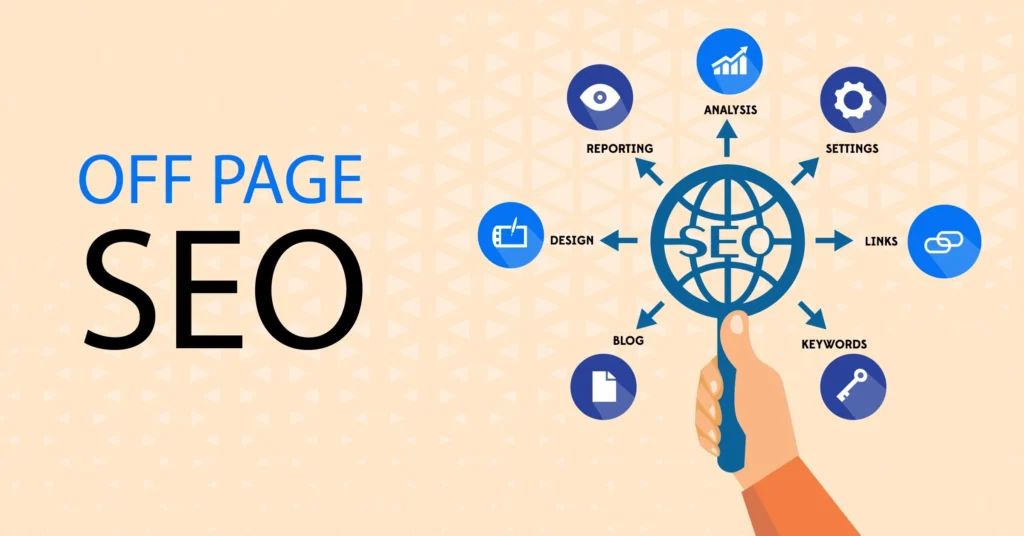
Off-page SEO includes all the strategies and actions taken beyond your own website that influence how search engines perceive your site’s authority, relevance, and trustworthiness. Think of it like building your website’s reputation across the web — getting other reputable sites to vouch for you, getting your brand noticed, and engaging with your audience on different platforms.
In this article, we’ll dive into what off-page SEO really means, why it matters, and how you can leverage it to improve your site’s ranking and attract more organic traffic. Whether you’re a beginner or looking to refine your SEO strategy, understanding off-page SEO is essential in today’s competitive digital landscape.
What is Off-Page SEO?
Off-page SEO encompasses all the actions and tactics carried out beyond your website to enhance its search engine ranking and boost its online credibility. Unlike on-page SEO, which focuses on optimizing content and technical elements on your site, off-page SEO is about building your site’s authority, credibility, and trustworthiness in the eyes of search engines, mainly Google.
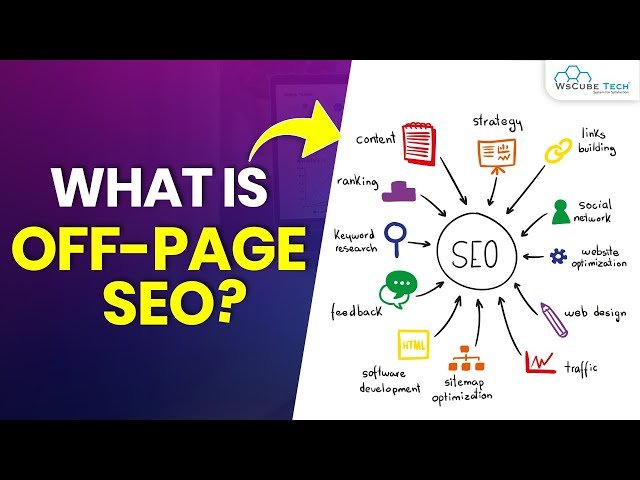
Think of off-page SEO as how other websites and users talk about your website on the internet. When reputable sites link back to your pages, mention your brand, or share your content, it sends a strong signal to search engines that your website is valuable, trustworthy, and relevant.
The most common and influential aspect of off-page SEO is link building — acquiring backlinks from other authoritative websites. However, off-page SEO is broader than just backlinks. It also includes social media marketing, influencer outreach, online reputation management, and brand mentions, among other tactics.
By investing time and effort into off-page SEO, you help search engines understand that your website is not only relevant to a topic but also respected by others. This, in turn, can boost your website’s position in search results and drive more organic traffic.
Why is Off-Page SEO Important?
In today’s digital world, basically having a well-optimized website isn’t sufficient to ensure tall search engine rankings. Search engines like Google want to provide the most important, dependable, and definitive results to their clients. That’s where off-page SEO gets to be crucial.
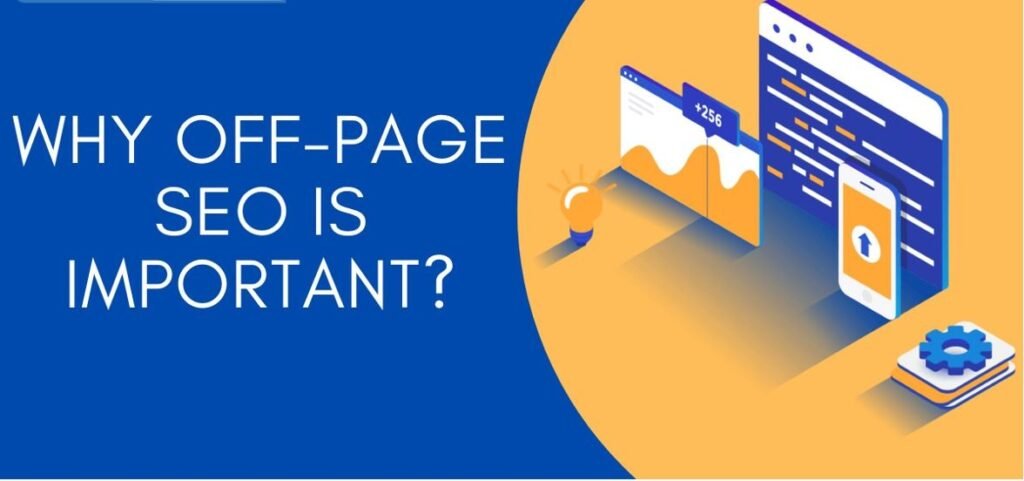
Off-page SEO helps construct your website’s notoriety and specialist past your claim pages. When other legitimate websites link to your site, mention your brand, or lock in with your content on social media, it signals to search engines that your website is reliable and important. This believe and specialist specifically impact how tall your website appears in search results.
Google’s positioning algorithms consider components like the quality and amount of backlinks, social signals, and brand notices to decide your site’s Expertise, Authoritativeness, and Trustworthiness (E-A-T). A strong off-page SEO nearness boosts these signals, making a difference your website stand out among competitors.
Moreover, off-page SEO can bring coordinate benefits past rankings — such as driving referral activity from other sites, expanding brand mindfulness, and drawing in a broader audience through social media and influencer outreach.
In short, off-page SEO is basic since it helps you:
- Gain credible endorsements from other websites.
- Build a strong online reputation.
- Improve your search engine rankings.
- Drive more natural and referral activity to your site.
Without off-page SEO, indeed the best on-page optimization can drop brief in competitive search situations. That’s why combining both on-page and off-page SEO techniques is key to accomplishing enduring online success.
Key Off-Page SEO Techniques
Off-page SEO includes a variety of techniques planned to progress your website’s reputation and specialist over the web. Here are a few of the most vital and successful methods you ought to focus on:
1. Link Building
Link building is the spine of off-page SEO. It includes obtaining backlinks — links from other websites indicating to your claim. Search engines see backlinks as “votes of confidence,” particularly when they come from definitive and important sites.
However, not all backlinks are made rise to. Quality things more than amount. Links from reliable, high-authority sites in your industry carry much more weight than links from low-quality or disconnected sites. Well known link-building techniques include visitor posting, broken link building, and outreach to industry bloggers or influencers.
2. Social Media Engagement
While social media signals (likes, offers, comments) may not straightforwardly affect your rankings, dynamic social media nearness makes a difference in a few ways. Sharing your content on stages like Facebook, Twitter, LinkedIn, and Instagram increases your content’s perceivability and chances of being linked to by other websites. It moreover makes a difference construct your brand and engage with your target audience.
3. Influencer Marketing and Brand Mentions
Getting taken note and specified by influencers and definitive figures in your specialty can incredibly improve your site’s notoriety. Indeed unlinked brand notices (where your brand is named without a hyperlink) can offer assistance progress your site’s seen specialist and dependability in Google’s eyes.
4. Content Marketing on External Platforms
Publishing content exterior your website — such as guest articles, infographics, recordings, or podcasts on third-party stages — can drive activity back to your site and build backlinks. Platforms like Medium, LinkedIn, YouTube, and industry forums are awesome places to share important content.
5. Online Reputation Management
Managing your business’s notoriety on review sites, catalogs, and gatherings is another off-page SEO technique. Positive reviews and appraisals on stages like Google My Business, Yelp, and industry-specific sites build believe among potential clients and signal to search engines that your business is reliable.
6. Forum Posting and Blog Commenting
Engaging in important online communities, forums, and blog comment segments can offer assistance construct relationships and brand mindfulness. When done really, these intelligent can moreover produce activity and links. However, maintain a strategic distance from spammy or self-promotional comments as these can hurt your reputation.
7. Press Releases and Digital PR
Issuing press discharges and collaborating with writers or media outlets can offer assistance your brand get highlighted on news websites and industry distributions. This kind of presentation regularly results in high-quality backlinks and increased brand authority.
Tools to Help With Off-Page SEO
Off-page SEO includes overseeing backlinks, checking brand mentions, and locks in with your audience across different stages. Luckily, there are capable tools available to make these assignments simpler and more successful. Here are some of the best tools to help you boost your off-page SEO efforts:
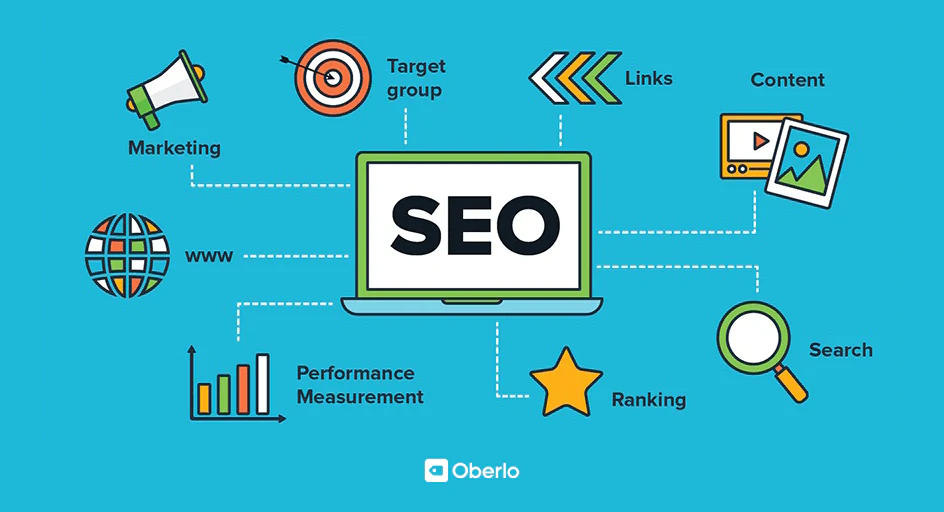
1. Ahrefs
Ahrefs is one of the most popular SEO tools, particularly for link building. It allows you to analyze your backlink profile, discover new link-building opportunities, and monitor your competitors’ backlinks. With Ahrefs, you can see which websites are linking to you, the quality of those links, and recognize any toxic backlinks that might hurt your SEO.
2. SEMrush
SEMrush is a comprehensive digital marketing device that offers capable features for off-page SEO. It makes a difference you track backlinks, monitor brand mentions, find influencers, and analyze competitor techniques. SEMrush too offers devices to manage your online notoriety and distinguish openings for guest posting and content promotion.
3. BuzzSumo
BuzzSumo is excellent for content marketing and influencer outreach. You can utilize it to discover the most shared content in your specialty, distinguish key influencers and bloggers, and track brand notices. This helps you target the right individuals for collaborations, visitor posts, or social offers to progress your off-page SEO.
4. Google Alerts
Google Alerts is a free and basic tool to screen your brand notices across the web. Whenever your brand or particular keywords are mentioned online, Google Alerts sends you an e-mail notice. This helps you keep track of discussions around your brand and engage instantly to construct your reputation.
5. Moz Link Explorer
Moz Connect Explorer helps you analyze your backlink profile and check the space specialist of linking websites. It moreover gives bits of knowledge into spammy links and helps you find modern linking opportunities.
Best Practices for Off-Page SEO
To get the most out of your off-page SEO endeavors, it’s imperative to take after demonstrated best hones that center on quality, genuineness, and consistency. Here are a few key rules to keep in mind:
1. Focus on Quality Over Quantity
When building backlinks, continuously prioritize links from important, definitive, and dependable websites. A few high-quality backlinks can have a much more prominent affect on your rankings than handfuls of low-quality or spammy links.
2. Diversify Your Link Sources
Don’t depend on fair one sort of backlink or one source. Point for a differing backlink profile by getting links from blogs, news sites, social media, gatherings, and industry catalogs. This assortment signals to search engines that your website has broad credibility.
3. Build Relationships, Not Just Links
Successful off-page SEO is around building genuine connections inside your specialty. Engage with bloggers, influencers, and industry communities really rather than fair inquiring for backlinks. These connections regularly lead to natural linking openings and brand mentions.
4. Use Natural Anchor Text
Avoid over-optimizing anchor writings by stuffing correct keywords. Utilize a normal blend of branded, nonexclusive, and long-tail grapple writings when linking to your site. This keeps your backlink profile looking natural and makes a difference dodge penalties.
5. Monitor Your Backlink Profile Regularly
Keep an eye on the backlinks pointing to your website. Utilize devices like Ahrefs or SEMrush to recognize and repudiate any spammy or hurtful links that might adversely influence your SEO.
6. Maintain Consistent Brand Presence
Make sure your brand’s title, contact data, and informing are reliable across all stages and postings. This consistency helps construct believe and progresses your site’s nearby SEO and overall reputation.
7. Engage with Your Audience
Actively take part in social media, gatherings, and online communities. Provide esteem by replying questions, sharing bits of knowledge, and joining discussions. This builds believe and increases your chances of earning backlinks and brand mentions.
What to Avoid in Off-Page SEO
While out- runner SEO can significantly boost your website’s authority and rankings, some practices can harm your point’s character or indeed lead to penalties from hunt machines. Then are crucial effects you should avoid:
1. Buying Backlinks
Purchasing backlinks from link granges, private blog networks, or shady providers might feel like a quick way to boost your rankings but it’s parlous. Google’s algorithms are veritably good at detecting unnatural link patterns, and buying links can lead to penalties that oppressively damage your point’s visibility.
2. Using Spammy or inapplicable Links
Avoid getting backlinks from inapplicable or low- quality websites that have no connection to your niche. similar links add no real value and can hurt your SEO. Focus rather on earning links from estimable and affiliated spots.
3. Over-Optimizing Anchor Text
Using the same exact keyword-rich anchor textbook constantly in backlinks can appear manipulative to search machines. Thisover-optimization may spark penalties. rather, use a natural blend of ingrained terms, general expressions, and variations.
4. Spamming Blog commentary and Forums
Leaving inapplicable or promotional commentary on blogs, forums, or social media groups just to get backlinks is considered spam. Not only does it harm your character, but utmost of these links are “ nofollow ” anyway, which limits their SEO benefit.
5. Ignoring Negative Brand Mentions
Ignoring or deleting negative reviews and commentary on review spots or social media can damage your online character. It’s important to respond professionally and instantly to maintain trust with your followership.
6. Neglecting to Examiner Your Backlink Profile
Failing to regularly check your backlinks can allow poisonous or spammy links to accumulate. These dangerous links can drag down your point’s rankings. Use SEO tools to cover and disavow bad links when necessary.
Measuring Off-Page SEO Success
To know whether your off-page SEO efforts are paying off, it’s important to track and measure key performance indicators (KPIs). Unlike on-page SEO, which can be measured through direct site changes, off-page SEO success is often reflected through external signals. Here are some of the most important ways to measure it:
1. Quality and Quantity of Backlinks
Backlinks remain the cornerstone of off-page SEO. Use SEO tools like Ahrefs, SEMrush, or Moz to monitor how many backlinks your website is gaining and the quality of these links. Look for links from high-authority, relevant websites rather than just the total number of links.
2. Domain Authority (DA) or Domain Rating (DR)
Domain Authority (from Moz) and Domain Rating (from Ahrefs) are metrics that estimate your website’s overall authority and trustworthiness based on your backlink profile. An increase in DA or DR over time indicates growing off-page SEO strength.
3. Referral Traffic
Check your website analytics (Google Analytics or similar) to see how much traffic is coming from external websites. High-quality backlinks and social media engagement should drive referral traffic, which is a strong sign that your off-page SEO is working.
4. Brand Mentions and Social Signals
Track how often your brand is mentioned online using tools like Google Alerts or BuzzSumo. Increased mentions and social engagement (shares, comments, likes) indicate rising brand awareness and off-page SEO impact.
5. Search Engine Rankings
Although rankings depend on many factors, steady improvement in your website’s position for target keywords is a key indicator that your off-page SEO efforts are effective. Regularly use rank tracking tools to keep an eye on the positions of your keywords.
6. Online Reputation and Reviews
Positive reviews and improved ratings on platforms like Google My Business, Yelp, or industry-specific directories also reflect successful off-page SEO, especially for local businesses.
Conclusion
Off-page SEO plays a vital role in boosting your website’s visibility, authority, and trustworthiness in the competitive online landscape. While on-page SEO ensures your website is well-optimized and user-friendly, off-page SEO works behind the scenes to build your site’s reputation across the web through backlinks, social engagement, influencer collaborations, and more.
By understanding what off-page SEO is and implementing proven techniques like quality link building, social media marketing, and brand monitoring, you can significantly improve your search engine rankings and attract more organic traffic. Remember, off-page SEO is not about shortcuts or quick fixes — it’s about building genuine relationships and a strong online presence over time.
With the right tools and best practices, along with a commitment to avoid common pitfalls, your off-page SEO efforts will help your website stand out as an authoritative and trustworthy source in your industry.
Start focusing on off-page SEO today, and watch your website’s credibility and traffic grow steadily for long-term success.


